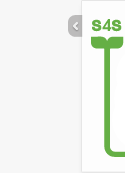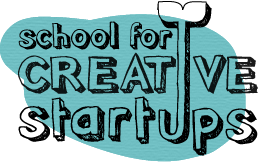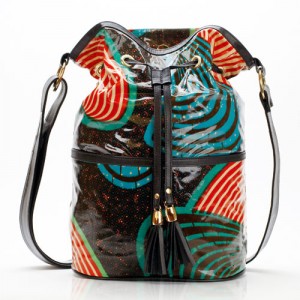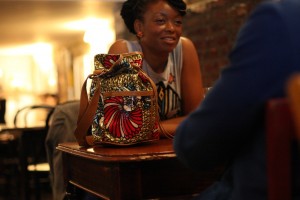July 27, 2012
What’s the name of your business and what promise does it make to customers?
The name of my business is Ugo’s Boutique.
At UGO we offer vibrant oilcloth bags made from traditional African fabrics which are beautifully handmade in the UK.
We wanted to give our customers a high-quality, durable statement piece that gorgeously accents their outfits year round and we carefully treat our hand picked fabrics to seal in their vibrant colours and to extend the life of each bag so it can be used daily without wear and tear.
We feel the innovation and manufacturing excellence we put into each item is a daily reminder, and an ongoing reinforcement, of the strength and power found in our African heritage.
You can see our most current collection of bags at www.ugosboutique.com. You’ll also find us on www.facebook.com/ugosboutique and Twitter at @ugosboutique.
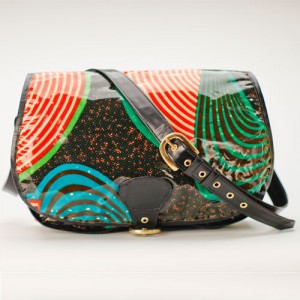
What made you decide to start your business?
In late 2005 my family and I travelled to my hometown Nigeria. It was the first time I’d visited since I came to England in 1989 and the one thing I was instantly inspired by was the visual feast of fabrics.
Reminiscing back to growing up in Lagos, I recalled that whether it was the rainy season, harmattan, or in the blazing sun.; there was never a time we locked our vivid fabrics away in anticipation of a brighter day.
I returned from my holiday on a mission to offer a product that could be worn all year round and that could withstand daily usage. I wanted something stylish and eye catching, versitile and durable.
After learning Pattern Cutting at Central Saint Martins, and building a portfolio at London College of Fashion, UGO was born.
Did you have a business before you started working with us? Or did you just have an idea of an enterprise you’d like to start?
I graduated from Middlesex University in 2003 with a degree in Criminology and worked in Her Majesty Revenue and Customs as a Civil Servant for 4yrs, before building a portfolio at London College of Fashion and learning pattern cutting at Central Saint Martins.
My job at HMRC and degree in Criminology has armed with with a lot of discipline and has given me the ability to strategise and plan effectively. Studying at two major fashion schools has given me a solid creative foundation upon which to build my label. I think the contrast in my creative and professional experiences give me a unique edge in business.
Prior to applying for the Creative School for startups I had been in business for thre months. I wanted to create a strong scalable business and knew I needed the advice and direction of professionals.
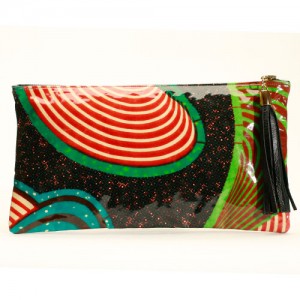
What kind of customer do you think your product is perfect for? Why?
My product is perfect for someone who has a good eye for craftsmanship and appreciates a great design. They want uniqueness, exclusivity and durability and they are willing to pay a price based on those values.
My customer shops on the high street, but also finds great value in vintage and charity shops. She is not trend driven, but she’s aware of the fashion scene. She has a strong sense of her own style and every piece in her wardrobe has a story. She’s drawn to color and she’s well traveled. She lives a well-considered life where what she owns reflects what she believes.
What made you decide to enroll in School for Startups a year ago? What challenges were you facing and what did you hope to learn?
I enrolled at the School for Creative startups last year because I needed help consolidating my business plan. I am at a stage of my business where I am seeking investments and funding.
One of the most important documents that investors look at is your business plan. On completing the course I’ve come away with a good framework and an ‘investor’s mindset’, which I describe as having a idea of what an investor is looking for in a business plan and also what information they expect to have in front of them.
For example in the appendix of your plan you have outlined a sales figure of X in year 1 and a figure od 3X in year two. Investeors expect a detailed explanation as to why you have forecast such growth. Being able to anticipate the questions an investor will be asking is very useful.
What meaningful and useful skills have you acquired over the last year through School for Creative Startups? How have you put them to use in working to build your enterprise?
A skill that I tap into quite regularly is being able to sum up what my business does concisely. The very first task we were assigned to undertake in our first bootcamp was to jot down our business proposition in a succinctly.
This is Similar to an elevator pitch; but in the summary we constructed, we had to state what service or product our business offered, include a reference of who our customers were and what the value proposition was. I have found that simple exercise very useful in various scenarios from completing application forms to actively networking.
It’s important to be able to say who you are, what you do, who you serve and what makes your product or service unique in the market place.
What were the most important topics we covered at the bootcamps and seminars? Why were they important to you?
The most important topic to me was a topic covered in our finale bootcamp called “The Art of Negotiation’.
UGO’s products are handmade in very small quantities in the UK, which can prove to be very expensive. I found the workshop on negotiation very useful in helping me identify the different approaches to adopt when undertaking a negotiation, and I learned how to distinguish which technique was the most appropriate to adopt for that particular scenario.
I came away understanding that you should enter a negotiation without preconceptions looking for the best deal for you and those you are working with.
How has your business changed based on what you’ve learned?
My business objective at the moment is to “stand on the shoulders of giants”.
The biggest challenge I face as a startup is visibility. To me standing on the shoulders of giants means I have to choose a channel to market that has consumer influence and offers my business increased visibility. I need to work with marketing partners who can introduce my product to the right kind of customers and who will benefit by bringing UGO’s innovative products to those they seek to serve.
In deciding which marketing opportunities to take part in, I often ask myself whether the people I’m talking to are giants and whether the opportunity they are offering me would give my label the visibility it needs. I also think about what value I and my work can bring to them.
Which speakers and mentors have had the biggest impact on you and your business?
Two workshops I attended had a huge impact on me and that was a half-day workshop on Branding and Marketing with Shane Reading and Social Media seminar with Andrew Davis from The Worst Kept Secret.
The delivery of their talk was quite suited to my learning style; they covered a lot of ground but at the same time they delivered it in a very engaging way. For example Andrew Davis used ad campaigns run by big brands to demonstrate how companies use social media to make a great and sometimes viral impact on consumers.
And on the other hand Shane used some of our businesses as examples and was able to walk us through how important consistency is in creating a strong brand and how that uniformity needs to be upheld when communicating that brand through marketing.
Do you feel more comfortable designing products and services that meet the needs of your customer?
Building a portfolio at London College of fashion I’ve always felt comfortable designing products that meets the needs of my customers. What I’ve learnt at S4CS is that the most important thing is getting that product to your customers in the right way at the right price. You can have the best product in the world but if you don’t fully understand who your customers are and how your customers want to receive it your product, you could still fail.
Which of your products are you proudest of? Why?
The product I’m most proud of is UGO’s Bucket Bag. When I first started the label my inspiration was to a create a bag that could be worn throughout the season, durable enough to carry on a daily basis, practical enough to hold a lady’s daily essential and versatile enough to carry seamlessly from daytime to evening. The bucket bag for me encapsulates all of the above and ticks all those boxes.
Are you more comfortable pitching your products, services and business to people in a position to help you or buy from you than you were before?
At the final bootcamp I took part in presenting my pitch to a senior buyer from Topshop, I found that exercise very useful and having received feedback from an established buyer I feel comfortable pitching my products when the opportunity arises.
Is there anyone you’ve pitched to, or sold to, recently that you’d like to tell people about?
I took part in a Christmas shopping boutique called Afridiziak in December 2011 and Shingai from the Noisettes bought our structured tote bag in the Tropical Foliage print and with the matching coin purse.
A story to hail the fact that S.E.O works; I had a customer based in New York who was on vacation in London. He came along to a pop up event I took part in earlier in the year and told me the story of how he found my label. He spotted a bag he liked, took a picture of it on his phone and Googled a keyword I’d attributed to my website. He found my website with ease and came along to one of my events. He showed me the picture he took of the customer wearing my bag in New York and explained to me the lengths he went through to track my label down. He was happy he was able to find my label, come along to the event and purchased a rucksack. In turn I was happy to discover the great lengths people go through to have something they really like and knowing that the work I’d put in choosing the most effective key words was well worth it.
As your business grows, do you feel you’ll be able to negotiate with suppliers, sales channels and investors comfortably?
Yes at the end of the negotiation workshop Doug delivered I felt a lot more confident in approaching one of my manufactures and used the techniques on my next trip. We are lucky enough to have access to course materials and audio from the course so I know I can always refer back to the library if I need tips when approaching other scenarios I may encounter as the business grows.
Do you feel you’ve developed relationships through this program that will help you in the months and years to come?
The fantastic thing about the course is being in a community with other business owners from differing industries. At the end of our first bootcamp a fellow student working in film offered us all a huge discount on he’s services. This was indeed of interest for creatives on the course who needed a professional video pitch or promotional video recorded.
I certainly feel that being in a diverse hub of fashion designers, photographers, curators, event organisers and filmmakers our relationship will grow as time goes on both in a business and professional capacity. As our businesses grows we will all have a plethora of resources to dip into, so If I was planning a launch party for a new range, and needed a professional photographer, some nibbles and a videographer I know I can approach a classmate who is able to point me in the right direction or better yet do it for me.
